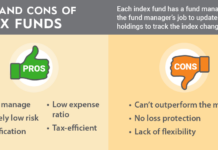Life isn’t fair when it comes to money. Some people have a ton of cash while others struggle to just scrape through every month.
When every other brand is trying to sell something to us, the urge to spend our way to social acceptance keeps going north every passing day. The endless spending spree leads us with too little financial savings, making us wonder what would happen if the next paycheck doesn’t hit our account for any reason. Without adequate savings, our world will turn upside down if an emergency strikes.
The best way to overcome the overwhelming feeling of money-deprivation is to save enough for all the things in life. Be it an emergency fund, a college fund, or a retirement fund, some money (or a lot of it) in the bank or in investments is always a saving grace all of us.
The toughest part of our savings journey is getting started. Once we get started, everything else falls in place and savings becomes an integral part of your life – just like eating, drinking, and sleeping.
To get started, here are 10 easy tips on how to save money and march on the journey of financial abundance.
1. Create a budget
We must start with a budget to save effectively.
Keeping a priority list of goals before creating a budget makes this task extremely simple. While building the list, we must ensure to focus on eliminating our high-cost debt, saving for an emergency, building a kitty for medium-term goals, and investing for the long-term. The budget should also reserve funds for living expenses.
The top priority items get an allocation in the budget right away while the others can be taken on later. To start, we should strictly enforce the budget on ourselves and put the money – that is not dedicated to living expenses – beyond our reach until the set goals are reached.
2. Set-up automatic withdrawals
Generally, people prefer different accounts for different objectives. For example, for emergency savings, we can choose a savings account or a fixed deposit, and for retirement savings, we can choose tax-advantaged accounts or mutual funds. To make hassle-free transfers to these accounts, we can set-up automatic withdrawals from our main account. With the automation, our own emotional biases will not creep in the savings process and we will end with a decent fortune later in life.
3. Rationalize food costs
Food is the basic necessity, but that shouldn’t stop us from being prudent about spending on what we eat and how much we spend on our diet. Cooking one or two meals every day, limiting our visits to expensive restaurants, planning our meals, and keeping a food budget can save us a ton of money that can be channeled into high earning investments to make more money.
4. Hit Unsubscribe and remove the cards
A lot of our impulsive online purchases end up being dumped in the wardrobe or invisible corner of the house. But, all those purchases started with a tacky e-mail that said, “that thing you will never use is available at a throwaway price”. The cycle gets repeated and we don’t even realize how we throw our good money on bad stuff all the time.
The best way to overcome the adrenaline rush for the wasteful spend is to hit unsubscribe on all those marketing emails. We can also remove the saved cards from our online accounts to add one more hurdle to the spending rush. The hassle is strong enough to make us take a U-turn on a wasteful spending decision.
5. Meditate with big expenses
It’s good to take a couple of steps back and think before spending money on things like an expensive watch or a high-priced smartphone. We must give an unbiased and unemotional thought to such expenses. If these expenses aren’t going to alter our life in a big way, it is best to avoid spending and save instead.
6. Save on utilities
We always think of utilities as expenses that can never be curbed. However, if we look out for alternatives, we can find a plenty of ways to reduce our utility expenses. We can switch from a postpaid phone to a prepaid one, opt for a cheaper wifi and cell-phone plan, check electricity and water usage, and use energy-efficient appliances to reduce our utility bills.
7. Rationalize entertainment and socializing costs
There are ways to cut down on entertainment and socializing costs without beating ourselves. Visiting restaurants and bars in happy hours, watching movies during the day or at home, sharing online streaming accounts, and swapping books are some of the low hanging fruits we can exploit to save on such expenses.
8. Plan your shopping
Whether it is grocery or apparel shopping, the store manager knows how to place the merchandise on the shelves to make us buy more. To not fall in the trap, we can build a list of items to buy and not diverge from the list ever. We can wait for the sale days, buy generic over branded, use coupons and rewards, and abide by the budget at all times to save more on our shopping.
Even when buying in bulk, we should be cautious and weigh the money that’s being blocked and the saving that’s being secured.
9. Go on spending fasts
Spending fasts are self-imposed, intermediate periods of abnormally low spending that let you spend only on the basic necessities while restricting all other expenses. Such fasts, every once in a while, can help us save tremendous amounts of money.
10. Invest, not spend
While expense is a financial outgo that provides instant gratification but nothing as a long-term return, an investment – financial or personal – increases our earning power and helps us choose the right career, do what we enjoy, and make more money. Investing on upskilling and upgrading ourselves is a different sort of saving that returns an exponential value with time.
The final word
Good finances have a tremendous positive impact on our life. The constant stress of money makes us weak – physically and emotionally – leading us further into a money-induced misery.
However, there is always light at the end of the tunnel, and the ones who see the light, see the clear sky while others continue to struggle. The best way to see the light is to acknowledge the problem and tackle it head-on by starting to save and sticking to the plan for some months. Once that line of resistance is crossed, there is no looking back and what follows is the end of financial struggle and beginning of a financial independence journey.












